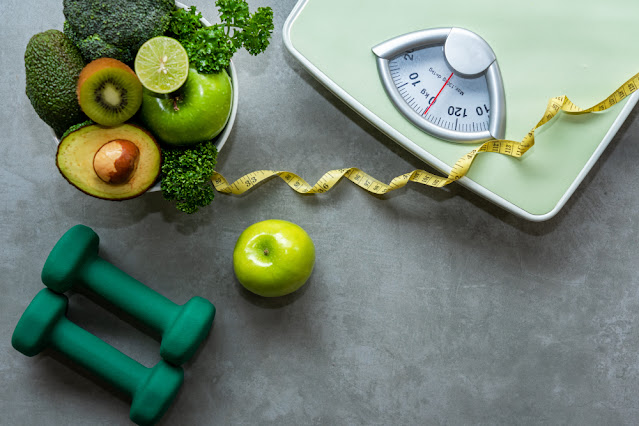Losing weight is a universal goal that transcends borders, cultures and language. In today's busy world, people are constantly trying to find ways to shed those extra pounds and maintain a healthy lifestyle. Whether it's for health reasons or aesthetic purposes, weight loss is a hot topic that everyone wants to know about.
 |
| Health care - What is the most effective method for reducing body weight? |
1. The Importance of Preventing Unwanted Weight Gain
By paying attention to hunger cues and eating mindfully, we can avoid overeating and keep our bodies fueled with wholesome, high-fiber foods. Incorporating regular exercise into our daily routines not only helps us maintain a healthy weight but also boosts our mood, energy levels, and overall wellbeing.
Let's set realistic goals for ourselves and make a commitment to living a healthier lifestyle. Together, we can prevent unwanted weight gain and live our best lives.
2. Risk of Being Overweight with Diabetes
3. Understanding Intermittent Fasting for Weight Loss
4. High-Fat Weight Loss Diets Explained
- I am so excited to share with you what I have learned about high-fat weight loss diets! Contrary to popular belief, these diets can actually be quite effective in shedding unwanted pounds. By reducing the number of carbohydrates in my diet and increasing my intake of healthy fats, I was able to see a significant change in my body composition and inflammation levels.
- Plus, I didn't feel like I was starving myself or sacrificing my favorite foods. It's important to remember that balance is key, as too much fat and not enough plant-based foods can have negative consequences for our health.
- But when done properly, a high-fat weight loss diet can be a great way to achieve your wellness goals.
5. Key Components of a Healthy Eating Plate
6. 15 Expert-Backed Tips for Safe and Sustainable Weight Loss
. I am thrilled to share with you some expert-backed tips for safe and sustainable weight loss. After extensive research and consultation with professionals, I have learned that implementing long-term lifestyle changes is crucial. I also focus on consuming whole foods, with vegetables being a significant component of my diet.
. Additionally, tracking my daily gratitude has helped me develop a positive mindset and maintain motivation. Instead of restricting certain foods, I focus on incorporating lean meats, healthy fats, and reducing added sugars and oils.
7. Implementing Long-Term Lifestyle and Behavior Changes for Weight Loss
- I am optimistic about implementing long-term lifestyle and behavior changes for weight loss. I understand that for successful weight loss, permanent changes in my lifestyle and health habits are necessary. To achieve this, I focus on changing both my eating and activity patterns.
- I also incorporate frequent self-monitoring and self-weighing, reduced calorie intake, smaller and more frequent meals, as well as increasing physical activity. I know that weight loss is primarily about reducing calorie intake, and that increasing physical activity alone won't suffice.
- Therefore, I make sure to talk about my lifestyle and behavior goals with friends, family, or a professional, such as a psychologist, who can help me navigate my feelings and provide support. By implementing these changes, I am confident that I will achieve safe and sustainable weight loss in the long run.
8. Focusing on the First 5% of Your Weight Loss Goal
Losing just 5% to 10% of my body weight can have significant health benefits, like reducing triglycerides by an average of 40 mg/dl. I'm taking time to learn from experts about setting realistic goals that are specific, measurable, achievable, results-focused, and timely.
I'm also celebrating even the smallest victories, like losing those first five pounds. I know that achieving and maintaining a healthy weight is a lifelong process, but by focusing on the first 5% of my goal, I feel confident that I can achieve lasting success.
9. How to Eat Slowly to Aid in Weight Loss
- I have discovered a simple but effective technique for aiding in weight loss - eating slowly! By taking the time to chew your food and savor each bite, not only do you get to enjoy your meals more, but you also give your brain enough time to recognize when you are full.
- I have found that focusing on foods that require more chewing, such as fruits, vegetables, nuts, and lean proteins, has made it easier to eat slowly.
- Additionally, counting my chews or taking breaks between bites also helps me pace myself.
- Moreover, studies have shown that people who eat slowly tend to weigh less.
- That's why I'm optimistic that incorporating this simple technique into my diet will help me reach my weight loss goals in a healthy, enjoyable way.
10. Pinpointing Reasons for Overeating to Lose Weight for Good
- By identifying which foods tend to make me feel out of control and avoiding them as much as possible, I'm able to decrease my chances of overeating and make progress towards my weight loss goals. Additionally, it's important to be aware of other factors that can contribute to overeating, such as stress or boredom.
- By being mindful of these factors and finding healthy ways to cope with them, I feel more in control of my eating habits and more optimistic about my ability to lose weight for good.


.jpg)


.jpg)